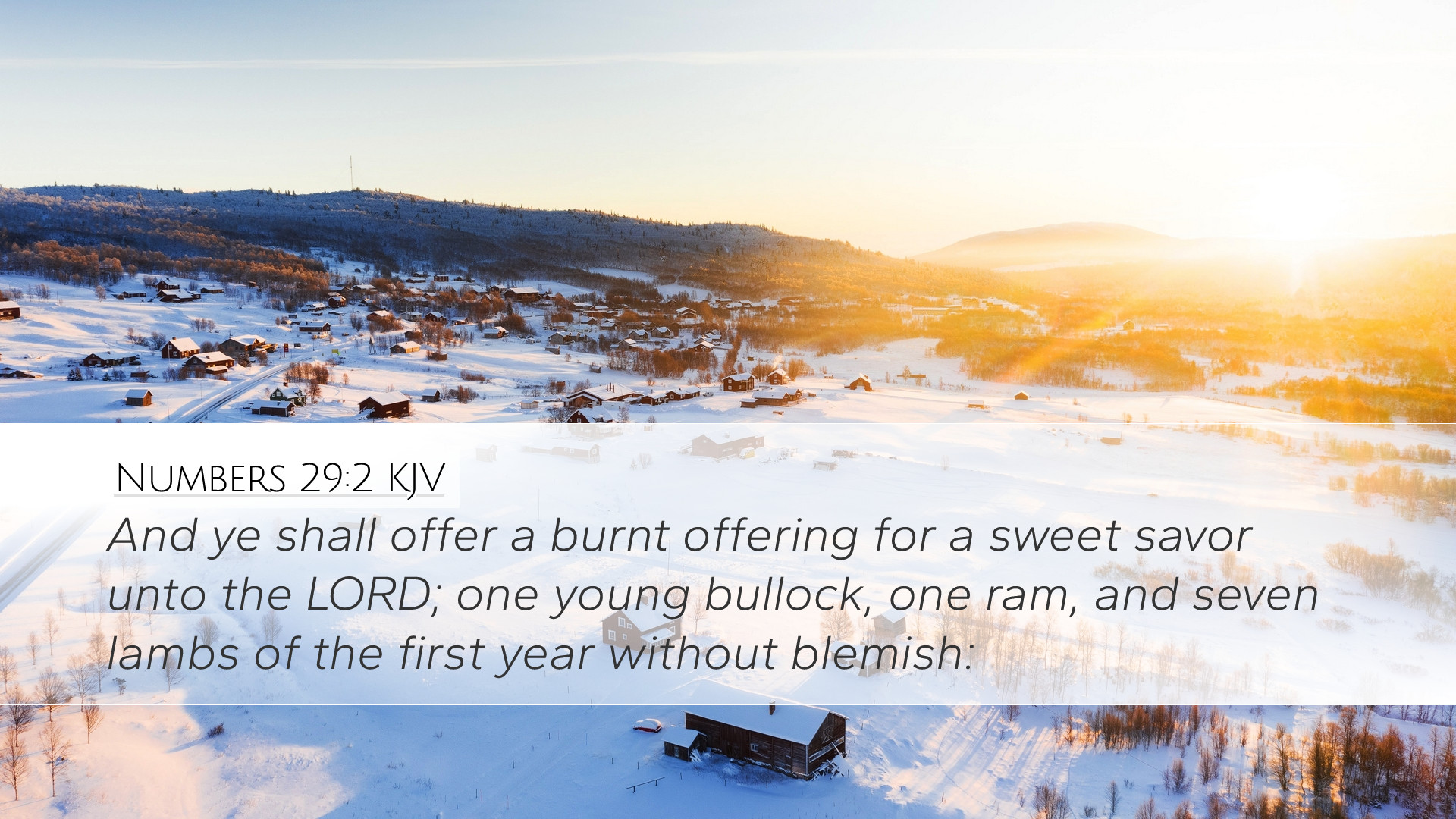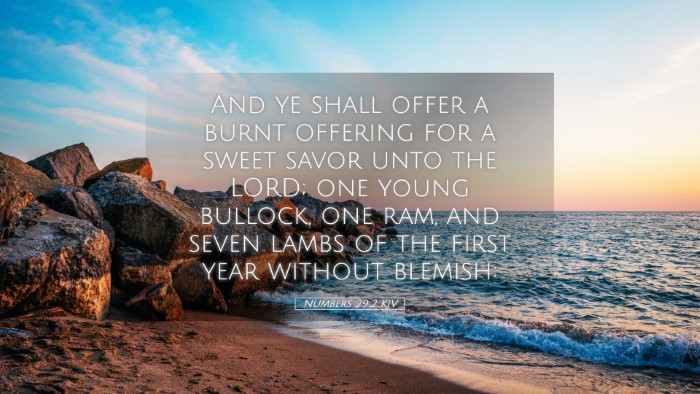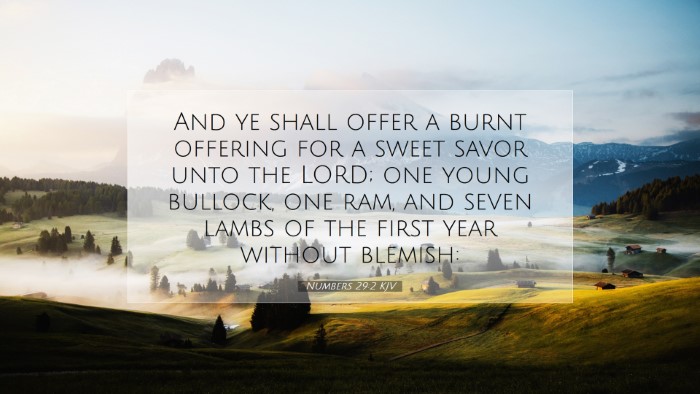Commentary on Numbers 29:2
Verse Text: "And ye shall offer a burnt offering for a sweet savour unto the Lord; one young bullock, one ram, and seven lambs of the first year; they shall be unto you without blemish."
Introduction
This verse is situated within the context of the sacrificial system of ancient Israel, particularly focusing on the offerings to be made during the Feast of Tabernacles. It highlights the importance of offering to God in a manner that is pleasing and acceptable. Understanding this verse requires examining the nature of the burnt offering, the symbolism of the animals mentioned, and the theological implications for worship.
Commentary Overview
Insights from various public domain commentaries can provide rich layers of understanding regarding the text. Notable works include those by Matthew Henry, Albert Barnes, and Adam Clarke, who delve into the significance of these offerings and their relevance both in the Old and New Testament contexts.
1. The Burnt Offering
Matthew Henry's Commentary: Henry emphasizes that the burnt offering represents complete consecration to God. The act of burning the offering signifies the total surrender of the worshiper to God. It also serves as a means of atonement, a reminder that sin has consequences requiring restitution.
Albert Barnes' Notes: Barnes notes that the phrase “for a sweet savour” indicates that such offerings were meant to please God. It conveys the idea of acceptance; thus, the act of offering was as much about the internal disposition of the offerer as it was about the physical act itself.
Adam Clarke's Commentary: Clarke points out that these specific offerings—a bullock, ram, and lambs—each have symbolic meanings. The bullock signifies strength and authority, the ram represents service and sacrifice, and the lambs symbolize innocence and meekness. Together, they underscore the multifaceted nature of atonement and worship.
2. The Specifics of the Offering
Matthew Henry's Insight: Henry explains the requirement of these specific animals. Each animal type plays a distinct role in the sacrificial system, reflecting different aspects of God’s holiness and the people’s need for reconciliation. The lambs, being the most common type of sacrifice, represent the everyday need for restitution.
Albert Barnes’ Perspective: Barnes notes that the requirement of “without blemish” highlights the need for purity and perfection in offerings to God. This concept reflects the holiness of God and the expectation of His people to approach Him with sincerity and integrity.
3. The Spiritual Significance
Matthew Henry on Spirituality: Henry connects these offerings to the New Testament understanding of Christ as the ultimate sacrifice. Just as the burnt offerings were made without blemish, so Christ, as the Lamb of God, was without sin, fulfilling the sacrificial requirements and enabling a direct relationship with God.
Adam Clarke’s Reflection: Clarke adds that such sacrificial acts were not solely about compliance with ritual but were meant to instill a deeper awareness of God’s grace. The communal aspect of sacrifices reminds the people of their collective identity as God’s chosen people.
Implications for Worship
This verse calls for a contemporary reflection on how offerings, both physical and spiritual, are presented in modern worship settings. The emphasis on offering without blemish compels believers to examine their own lives, ensuring that they approach God with sincerity.
- Holiness in Worship: The necessity for defect-free offerings implies that worship must be conducted in a manner reflecting God's holiness.
- Intent of the Heart: The notion of 'sweet savour' underscores that God values the heart behind the offerings even more than the offerings themselves.
- Collective Community: Communal offerings suggest that worship is not only an individual act but also a collective expression of faith among believers.
Conclusion
Numbers 29:2 encapsulates profound truths about worship, sacrifice, and relationship with God. Through a careful examination of the burnt offering, its requirements, and its symbolism, this verse challenges pastors, students, and theologians to reflect on the nature of their offerings before God. Much like the ancient Israelites, modern believers must approach God with offerings that are pure, sincere, and fully surrendered to His will.


